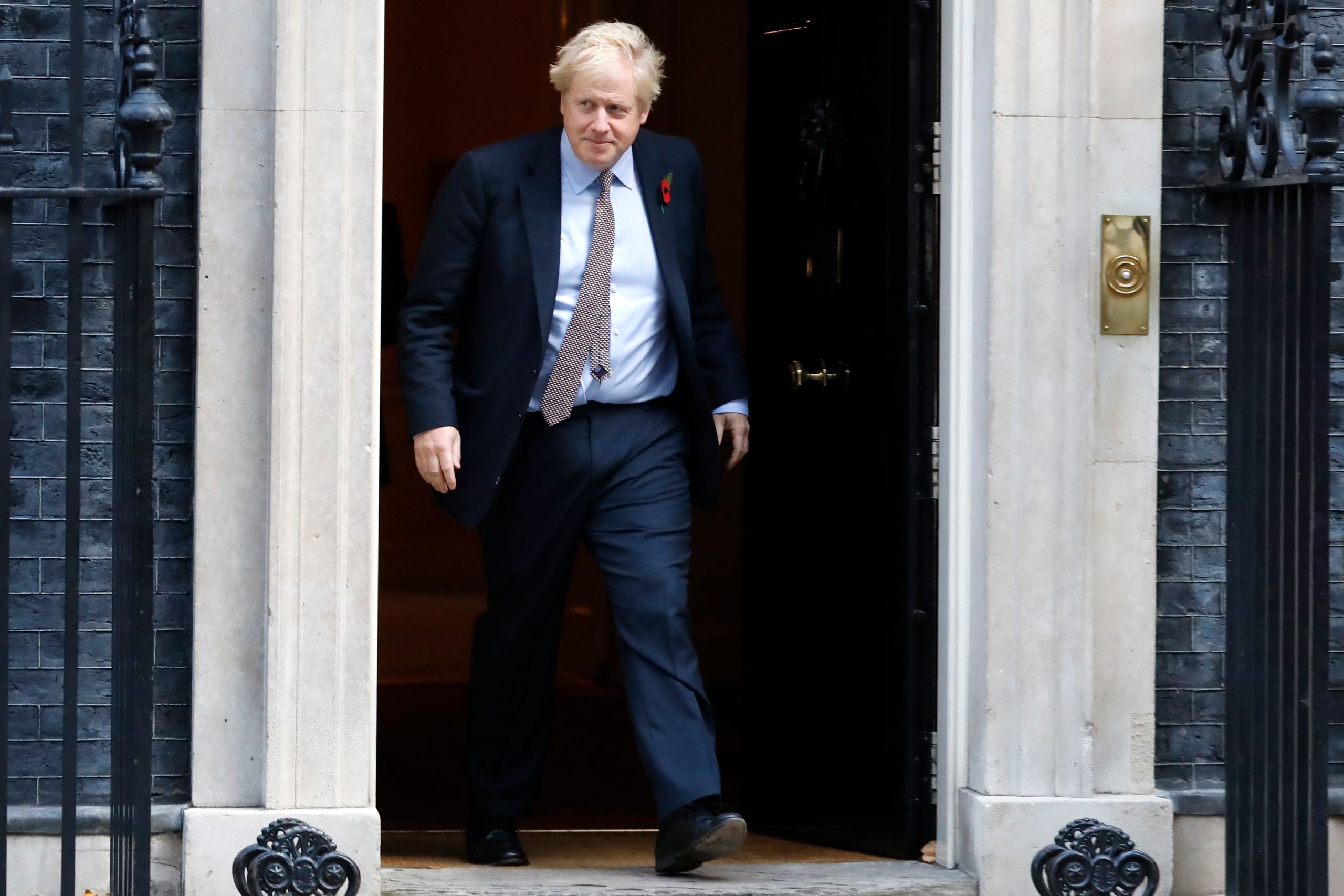
For Conservative MPs, this general election is a bit like going to an expensive restaurant and the bill arriving before the food is even served. They have handed over their debit cards and folded their napkins away, but the quality of the final meal is still unknown.
The upfront cost of the election is remarkable. Picking Boris Johnson – the politician who, alongside Nigel Farage, is most associated with the Brexit vote in 2016 – means that most, if not all of their 13 colleagues with constituencies in Scotland are set to lose. Even the most optimistic of Tories accept that those 13 will be joined, at the very least, by half a dozen MPs who will be defeated by a reviving Liberal Democrats in England.
That’s the price. The hoped-for prize is that by concentrating the majority of the Leave vote under Boris Johnson’s banner, the Conservatives will win dozens of seats across England and Wales from Labour. This would secure their first decent parliamentary majority since 1987, which in turn would allow them to deliver their preferred version of Brexit and enact a far-reaching domestic programme.
So far, the smells emanating from Johnson’s kitchen are promising: the majority of polls show the Conservatives with a healthy lead, at or beyond the point when the UK’s eccentric first-past-the-post system begins to return comfortable majorities for the winning party.
Yet the mood among Tory MPs is far from sanguine. I asked one young MP how they were. “Ask me in six weeks,” was the anxious reply. Another, whose seat is exactly the type of marginal in which the Tories ought to be doing well, frowned and told me that they “hoped they’d be OK”.
What’s the cause of Conservative discomfort? Talk to most MPs and they will tell you that Johnson heads a more efficient Downing Street operation than Theresa May did. Talk to anyone, whether an MP or an aide, with links to the Conservative Campaign Headquarters in London and they will talk cheerfully of the clear lines of accountability running from and to Isaac Levido, the former protégé of David Cameron’s campaign manager Lynton Crosby who this time is running the general election campaign. They will speak with relief about Dominic Cummings’s decision to keep away from the day-to-day running of the campaign, because they believe it has reduced the chances of a repeat of 2017, when it was never clear who was in charge: Crosby, or May’s powerful joint chiefs-of-staff, Nick Timothy and Fiona Hill.
But part of the cause for anxiety is that whether Johnson leads the Conservatives to a big victory, another hung parliament or a shock defeat, he will do so with fewer votes than May managed in 2017 (she won 42 per cent of the vote). At that snap election, May successfully attracted the majority of Leave voters behind the Tory banner, but lost her parliamentary majority because Jeremy Corbyn’s Labour cancelled out her achievement by uniting most Remainers. Both parties have since lost support: to Nigel Farage’s Brexit Party, to the Lib Dems, to the Greens and to nationalists.
Johnson’s strategy is to regain some but not all of the votes lost to the Faragists – and to write off the votes lost to the Remain parties as gone, if not for good, at least for the foreseeable future. There’s just one vulnerability: it depends on Corbyn failing to recover most of the vote he has lost since 2017.
That gamble is the main source of Tory unease. Political parties tend to have a good handle of what their own voters are doing and a largely impressionistic grasp on how their opponents are. Conservatives in marginal seats know that they are, for the most part, on course to get fewer votes than last time. If Corbyn can re-enact his 2017 feat, their jobs may be lost. Their anxieties are only heightened by something lifting spirits in the Labour leader’s office: Corbyn is energised once again on the campaign trail.
Committed loyalists have always been of the view that “a different Jeremy” will emerge during an election and that he can pull off another extraordinary turnaround in the party’s fortunes. The campaign so far looks like a mirror image of 2017: the social media clips are slick and well presented; Corbyn’s visits to marginal seats are accompanied by backdrops of cheering crowds; and the party has a well-developed strategy for maximising its coverage in local newspapers and on the regional evening news programmes, both of which the leader’s office believe are fairer and more inclined to talk about their preferred issues of transport and public services. While the mood in the Parliamentary Labour Party is bleak, in Corbyn’s inner circle there is a greater sense of optimism; his advisers are delighted that they appear to have secured a one-on-one televised debate with Johnson.
Yet for some Tories, whether Corbyn can pull off a revival is a secondary concern. What they worry about most is tactical voting among Remainers or the formation of pro-Remain party pacts. The Lib Dems, Greens and Plaid Cymru will work together in a handful of seats, potentially to decisive effect. Mutual antipathy among Labour, the Lib Dems and Plaid Cymru means that no such deal will be done involving Corbyn’s party. But if voters in the country decide to vote tactically, that will boost Labour in at least 200 seats, with potentially ruinous consequences for the Tories.
And that’s the deeper cause of Conservative anxiety: things look, sound and smell good, but whether the promised feast ends up on the Tory table or something untoward happens on the way from the kitchen is out of the control of Boris Johnson or his MPs. They have made a virtue of putting their fate in the hands of their opponents – and they can’t be sure how that will work out.
This article appears in the 06 Nov 2019 issue of the New Statesman, What went wrong





